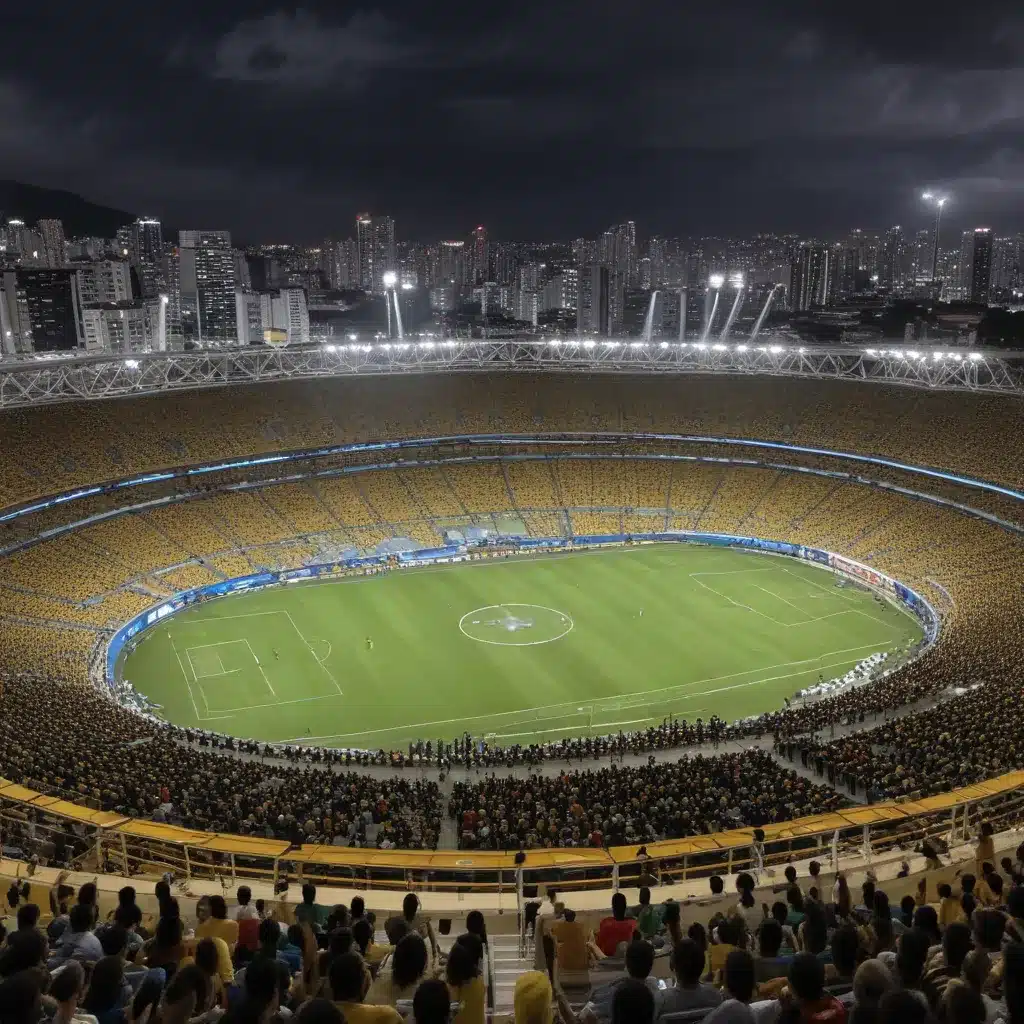
Brazil’s Football Regions
Football in Brazil is a beloved national pastime, with passionate fan bases spanning the diverse regions of this vast country. From the sun-drenched stadiums of the North to the raucous arenas of the South, each region boasts its own unique football culture and competitive spirit.
The North Region is home to clubs like Pará giants Paysandu and Remo, whose intense derby matches captivate local supporters. The Northeast Region is a hotbed of talent, with Bahia and Ceará leading the charge in state championships that showcase the region’s vibrant football heritage.
Moving westward, the Central-West Region features powerhouses like Goiás and Atlético Goianiense, whose matches are often decided by the narrowest of margins. The mighty Southeast Region is dominated by the big three of São Paulo, Rio de Janeiro and Minas Gerais, where legendary clubs like Flamengo, Corinthians and Cruzeiro engage in titanic battles.
Finally, the South Region is the domain of clubs like Internacional and Grêmio, whose passionate supporters create an electric atmosphere in their state and national competitions.
Venue Selection Factors
The selection of venues for Brazil’s regional football tournaments is a complex process, with a multitude of factors at play. Infrastructure, capacity, accessibility, and geographical location all play crucial roles in determining the host cities and stadiums.
Infrastructure: The quality and modernization of a venue’s facilities are paramount. Factors such as pitch conditions, dressing rooms, media facilities, and spectator amenities all contribute to the overall match-day experience.
Capacity: The size of the stadium is a significant consideration, as tournament organizers aim to maximize ticket revenue and accommodate the passionate fan bases of participating clubs.
Accessibility: Ease of travel and transportation for both players and supporters is a key priority. Proximity to major airports, highways, and public transit networks can greatly influence venue selection.
Geographical Location: The geographical distribution of venues across a region is carefully considered to ensure fair representation and minimize travel burdens for competing teams.
Impact of Venue Selection
The choice of venues for Brazil’s regional football tournaments has a profound impact on both the player and fan experiences, as well as the broader economic implications for host cities.
Player and Fan Experiences
Travel Logistics: The location of the venue can significantly impact the travel demands placed on players, who may face long journeys to and from matches. This can affect their physical preparation and recovery, potentially influencing the quality of play.
Spectator Comfort: The amenities and facilities available at the stadium directly contribute to the overall match-day experience for supporters. Factors such as seating, concessions, and accessibility can make or break a fan’s experience.
Home Team Advantage: The geographical proximity of a venue to a participating club’s home base can provide a distinct advantage, with the passionate local support acting as a 12th man on the pitch.
Economic Implications
Ticket Revenue: The capacity and desirability of a venue can directly impact the ticket sales and overall revenue generated by a regional tournament. High-demand fixtures in modern, well-appointed stadiums can drive up ticket prices and boost financial returns.
Local Business Impact: The influx of supporters and media attention surrounding a regional football tournament can provide a significant economic boost for host cities. Local businesses, such as hotels, restaurants, and retail outlets, often experience a surge in activity and revenue.
Tourism Boost: The hosting of a major regional football event can also serve as a catalyst for increased tourism, as fans from across the country and even internationally flock to the host cities to experience the passion and atmosphere of the tournament.
Regional Football Tournament Formats
Brazil’s regional football tournaments are structured in a variety of formats, each with its own unique characteristics and implications.
Championship Structure
League System: Some regional tournaments, such as the Campeonato Paulista and Campeonato Carioca, follow a traditional league format, where teams play each other in a round-robin format to determine the champion.
Knockout Tournaments: Other regional competitions, like the Campeonato Mineiro and Campeonato Gaúcho, employ a knockout format, with teams advancing through a series of elimination matches until a winner is crowned.
Qualifications and Seedings
Regional Representation: The composition of teams participating in regional tournaments is often determined by their geographical location and performance in the previous season’s competitions.
Performance History: The seeding of teams in regional tournaments can be influenced by their historical performance and success in these competitions, ensuring that the strongest clubs are distributed across the tournament bracket.
Analyzing Tournament Outcomes
The outcomes of Brazil’s regional football tournaments are shaped by a multitude of factors, including the impact of venue selection on player and fan experiences, as well as the broader economic implications for host cities.
Performance Metrics
Match Attendance: The attendance figures for regional football matches can serve as a barometer for the level of fan engagement and the overall appeal of the tournament.
Competitive Balance: The distribution of wins and losses across the tournament can provide insights into the parity and competitiveness of the regional competitions.
Commercial Success: The financial performance of regional tournaments, including ticket sales, sponsorship revenue, and media rights, can be used to gauge their commercial viability and long-term sustainability.
Geographical Biases
Regional Dominance: The historical patterns of success for clubs from specific regions can shed light on the potential geographical biases and imbalances that may exist within the tournament structures.
Venue Rotation Policies: The implementation of venue rotation policies, where host cities are regularly rotated, can help to mitigate any perceived geographical biases and ensure a more equitable distribution of opportunities for clubs across the different regions.
As Brazil’s regional football tournaments continue to evolve, the careful consideration of venue selection and its multifaceted impact on players, fans, and local economies will be crucial in maintaining the integrity and appeal of these beloved competitions. By addressing the various factors at play and continuously striving for fairness and innovation, the organizers of these tournaments can ensure that the passion and excitement of Brazilian football remain at the heart of these regional showcases.

